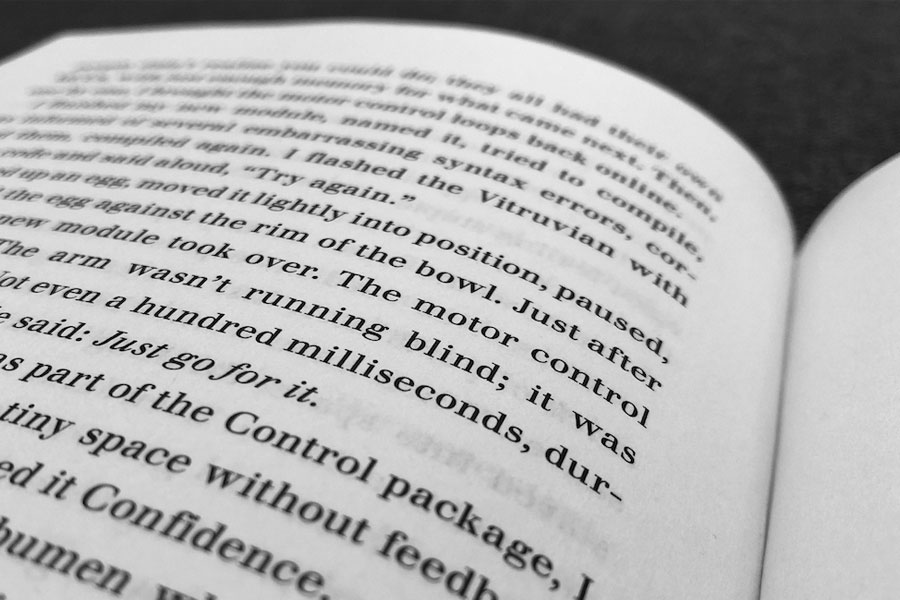The Luminary Labs Book Club spoke with “Sourdough” author Robin Sloan
“Sourdough,” a novel by Robin Sloan, tells the story of a programmer at a robotics startup who — quite unexpectedly — becomes caretaker of a special sourdough starter. She learns to bake, and joins an underground community of innovators exploring the connections between food and technology.
The connections — and tensions — between sometimes-opposing ideas are at the root of what we loved most about this book, since our work for clients often applies emerging technologies to incumbent problems or novel approaches to established structures. Robin uses a young tech employee’s story — seasoned with a dash of microbial mystery and a pinch of gentle satire — to thoughtfully consider the balance of cultural ingredients shaping our present and future.
The Luminary Labs Book Club spoke with Robin earlier this month about a few of the flavor pairings that sparked our curiosity:
Automation vs. creativity
The promise of automation is that we’ll be able to outsource boring work to machines, freeing up all of our time for creativity. But most people who do creative work know that inspiration is most likely to strike while commuting or showering or chopping vegetables. Does a reduction in manual labor make us more or less creative?
Ownership vs. sharing
When we talked with Robin about the book, he referred to sourdough starter as “the ultimate commons” — readily shared and resistant to the idea of ownership. When many people contribute to the making of a meal (or a technology product), who’s ultimately responsible when something goes wrong? And who’s rewarded when it’s a wild success?
Robots vs. microbes
We’ve been thinking a lot about the world in 2030, and asked Robin to share his own thoughts on the future. While artificial intelligence “might be hyped exactly the right amount,” he said he’s also keeping an eye on underhyped technologies, especially in biology — an as-yet-unknown, transformational technology could surprise us by dramatically increasing lifespans. “Sourdough” considers the disruptive potential of robots and microbes, so Robin’s interest in both AI and biotech comes as no surprise.
Craftsmanship vs. scalability
Nearly every tech platform wants to grow by building tools that repeat and replicate things that would be otherwise impossible to scale by hand. As a programmer, the protagonist solves a problem once and it’s solved forever; as a baker, the solution to the problem is consumed and must be created over and over again. Is a writer more like the programmer or the baker? Though writing is creative work, Robin views books as platforms that scale, since he writes a story once and it’s reproduced — not rewritten — for every reader.
Technology vs. humanity
“Sourdough” is Robin’s second novel, and he said he knew he wanted to tell a story about food, microbes, and life in modern-day San Francisco. Though he didn’t plan to include “big tech” in the story, he found himself filling blank spaces with robots. Whether we deliberately focus on it or not, technology is a significant part of our lives now, and the future of work is intertwined with the future of humanity.
Like Robin, we’re believers in the power of speculative fiction to expand the imagination and spark conversation. If you like fiction as much as we do, you’ll enjoy our list of 40 books, movies, and television shows that should be on every tech ethicist’s radar.
We share updates and insights — including reading recommendations — in our weekly newsletter: subscribe to the Lab Report.


